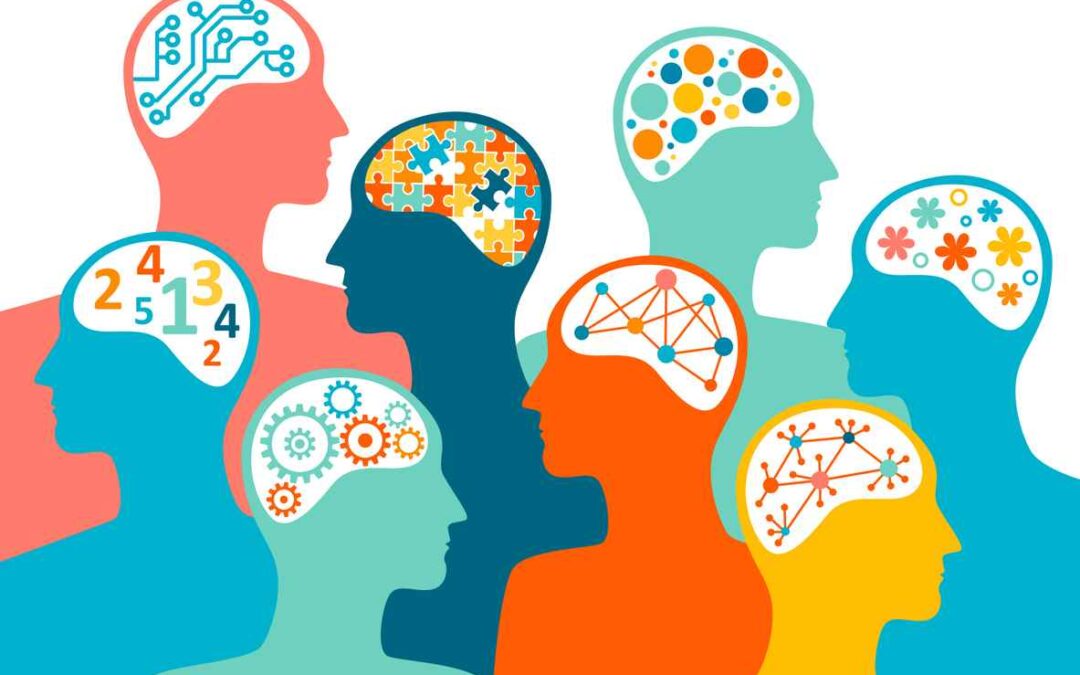In recent years, the term “neurodivergent” has gained recognition and acceptance as society begins to understand and embrace the diversity of human brains. But what exactly does it mean to be neurodivergent? This blog aims to explore the concept of neurodivergence, the various types of neurodivergent conditions, and the impact they have on individuals’ lives. We will also discuss inclusive strategies and support for neurodivergent people.
Understanding Neurodivergence
Neurodivergence refers to the variation in the human brain regarding sociability, learning, attention, mood, and other mental functions. Coined by sociologist Judy Singer in the late 1990s, the term acknowledges that neurological differences are natural variations of the human genome. Being neurodivergent means that an individual’s brain functions differently from what is considered “neurotypical,” or the standard way of processing information.
Types of Neurodivergent Conditions
There are several types of neurodivergent conditions, each with its own unique characteristics and challenges. Some of the most commonly recognized neurodivergent conditions include:
Autism Spectrum Disorder (ASD)
Autism is characterized by differences in social interaction, communication, and repetitive behaviors. People with autism may have unique strengths and abilities, such as exceptional memory or attention to detail.
Attention Deficit Hyperactivity Disorder (ADHD)
ADHD affects an individual’s ability to maintain attention and control impulses. People with ADHD might be highly energetic and creative but may struggle with organization and time management.
Dyslexia
Dyslexia is a learning difference that affects reading and language processing. Individuals with dyslexia often have strong problem-solving skills and can think outside the box, despite challenges with reading and writing.
Dyspraxia
Also known as Developmental Coordination Disorder (DCD), dyspraxia affects motor coordination and planning. People with dyspraxia may have difficulty with tasks that require fine motor skills, but they often excel in areas that involve creativity and strategic thinking.
Tourette Syndrome
This condition involves involuntary tics and vocalizations. While it can be disruptive, individuals with Tourette Syndrome often demonstrate remarkable resilience and determination.
Impact on Daily Life
Being neurodivergent can significantly impact an individual’s daily life. The challenges faced by neurodivergent people vary widely depending on their specific condition and personal circumstances. Common challenges include:
Social Interaction
Neurodivergent individuals may find social situations overwhelming or confusing. They might struggle with interpreting social cues, maintaining eye contact, or understanding unspoken social rules.
Education and Employment
Traditional educational and workplace settings may not accommodate the unique learning and working styles of neurodivergent individuals. This can lead to misunderstandings, frustration, and underachievement.
Mental Health
Neurodivergent people are more likely to experience anxiety, depression, and other mental health issues. This can be due to the stress of navigating a world designed for neurotypical individuals.
Despite these challenges, neurodivergent individuals often possess remarkable strengths and talents. With the right support and accommodations, they can thrive in various aspects of life.
Neurodivergent Coaching Services in New York
If you or someone you know is looking for neurodivergence coaching, contact Spectrum Strategies in New York. Our experienced coaches are dedicated to helping neurodivergent individuals achieve their full potential. Embrace neurodiversity and unlock your unique strengths with Spectrum Strategies.

